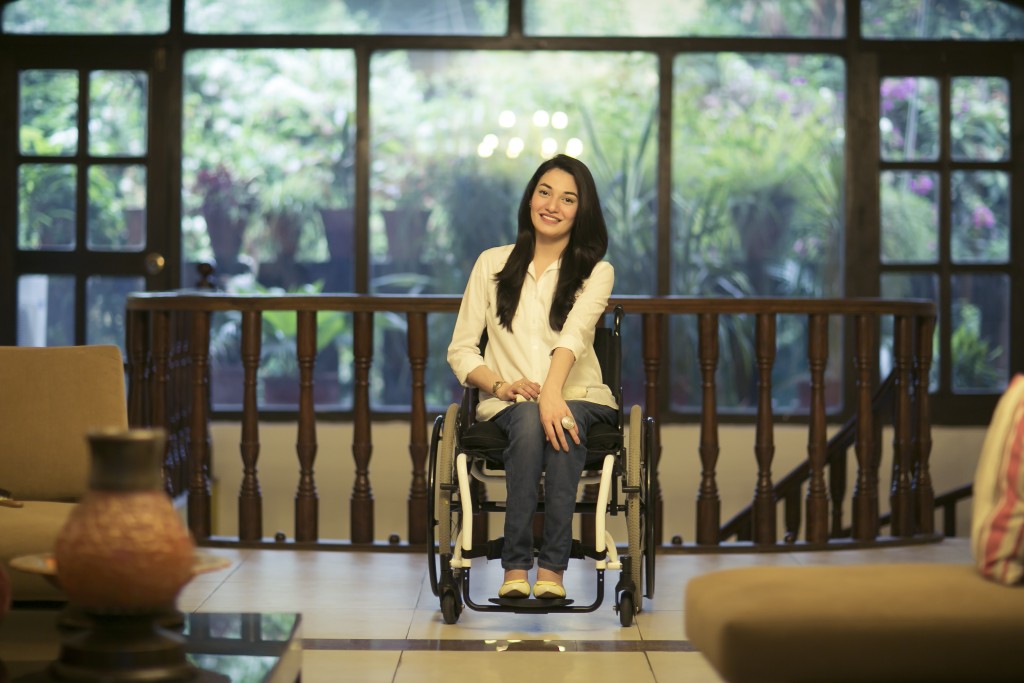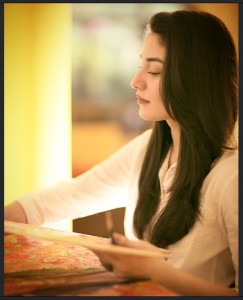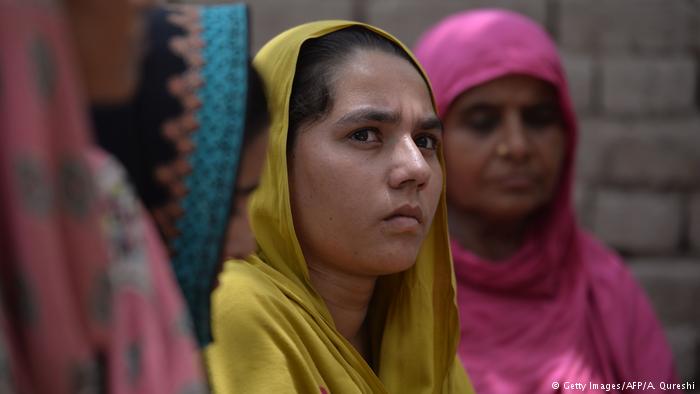Muniba Mazari: Empowering Women and Girls in Pakistan
Muniba Mazari represents the modern woman in Pakistan. In a conservative country like Pakistan, she has broken the stereotypes. She is a writer, artist, singer, activist and a motivational speaker . The beautiful and attractive young female is also a paraplegic, having lost control of both legs after sustaining injuries in a car accident. Recently, UN Women, the United Nations entity for gender equality and the empowerment of women, named Muniba Mazari as Pakistan’s first female goodwill ambassador to advance gender equality and the empowerment of women and girls.
As the goodwill ambassador for UN Women Pakistan, Muniba will dedicate her efforts towards the empowerment of women and girls, and would serve as an advocate for UN Women’s “Planet 50-50 by 2030: Step It Up for Gender Equality” and other campaigns. DW’s Beenish Javed spoke to this talented woman about her achievements and the struggles she went through.
DW: We know you are a national ambassador for women in Pakistan, You are also a painter and a singer, You have been a talk show host and a motivational speaker too. How did you discover about your talents? Were you always like that ?
I owe my success and what I’ve in me to those who never believed in me. When you lose something big in life that’s the time you start to explore yourself. Because then you really want to prove yourself. The day I sat on the wheelchair I knew I was physically weak so I decided to make myself financially and emotionally strong. We all have hidden talents, we just need to explore them. Many of us don’t follow their dreams because we are scared of people. In my case, these wheels have given me wings. They have made me fearless. So whatever I want to do, I do it fearlessly.
Would you like to tell us about your accident. At what age did it happen. and how did it happen ?
I was 20 when I had this accident. It’s been 9 years. I was traveling from Quetta to Rahim Yar Khan. Due to the driver’s negligence the car went into a ditch. This incident broke me physically but has made me a stronger person emotionally.
Was it easy for you to cope up with this accident? How did you friends and family support you ?
Initially It was very painful physically and emotionally. Half body was fractured, half was paralysed because of the spinal chord injury. The fact that half your body stops working and you realise you’ll stay this way for the rest of your life, can make you depressed. But then I gathered myself because of my mother and brothers, that is my staunch support system. I live for them, they live for me.
The accident must also be a difficult experience as in a country like Pakistan where there are few opportunities for people in a wheel chair. What has been your experience?
I know that practically it’s hard to live in a country where there’s no disability awareness. But let me tell you whatever I am today it’s because of this country and its people. The respect and love that I’ve received from everyone is priceless. This country is the land of opportunities for those who have the courage to face challenges head on.
You have demonstrated a remarkable ability to convert a weakness into a strength. What really motivated you to overcome all the obstacles, both physical and psychological?
The only thing that keeps me going is the desire to do something better for the country and for its people. I just wanted to live a purposeful life. I know I’m a very blessed human being. There are many in the world who are not as blessed as I am. So giving yourself a reminder of being grateful helps you in dealing with all kinds of negativity and depression.
Tell us about your son and the relationship you enjoy with him.
The day I held Nael in my arms for the first time, I felt complete. Now he’s almost five. We are great friends. We paint together, we play, we learn new things everyday, we laugh and cry together. This little soul has given me so much strength and a beautiful reason to live.
In a country like Pakistan women have less opportunities and they face different kinds of pressures. What message would you like to give to not only women but to their families too?
It’s not only about opportunities. Sometimes you have to become fearless to pursue your dreams. Sometimes you have to create opportunities. It’s not your weakness that you are a woman who lives in Pakistan. Make it your strength. Show your family what you are capable of. And the people who truly love you, will always support you.
Lastly, as an ambassador for UN Women you also have great responsibility. Tell us how you are helping or motivating women?
People ask me about women’s empowerment. I always say that no one can empower a woman but a woman herself. My responsibility is to tell not just women but men as well that in this day and age, you can’t live a happy successful life if you believe in gender discrimination. Gone are the days when women were told what to do and what not. Today we know what we want and we have taken charge of our lives and our decisions. I want both men and women to understand this simple thing that when a woman empowers herself, she empowers the whole generation. So let’s support her and tell her that she’s capable of doing everything.
Author: Beenish Javed
Editor: Grahame Lucas
_____
WTO RECOMMENDS
Salma’s Story: Little Girls with Dreams Become Women with Vision
I used to pass through a square near Benazir Bhutto International Airport Islamabad, Pakistan everyday, as it was the way to my office. One day I saw a young girl, aged around seven, sitting on the bus stop at the airport square and selling some snack packs to the passengers. I bought some snack packs, as one of my teachers told me once, if we buy something from a young person like her, it inspires and encourages him/her to work harder. In doing this we can play our part in improving the society. (From May 22, 2015)
Women Are Not a Burden for the Economy
Most of the women entrepreneurs who attended the exhibition were from far off regions of the country and were exhibiting handicrafts. Things for daily use were the most common. There were hand-bags, designer clothes, table covers, decoration pieces, fruit baskets, wooden tea- saucers, copper vases and jewelry items etc. (From June 19, 2016)
Violence against women in Pakistan often met with ‘state inaction’
Eight years into Pakistan’s democratic transition, violence against women is still endemic, a new ICG report found. The group’s Samina Ahmed talks about why biased attitudes towards women lie at the heart of the problem. (From April 9, 2015)









